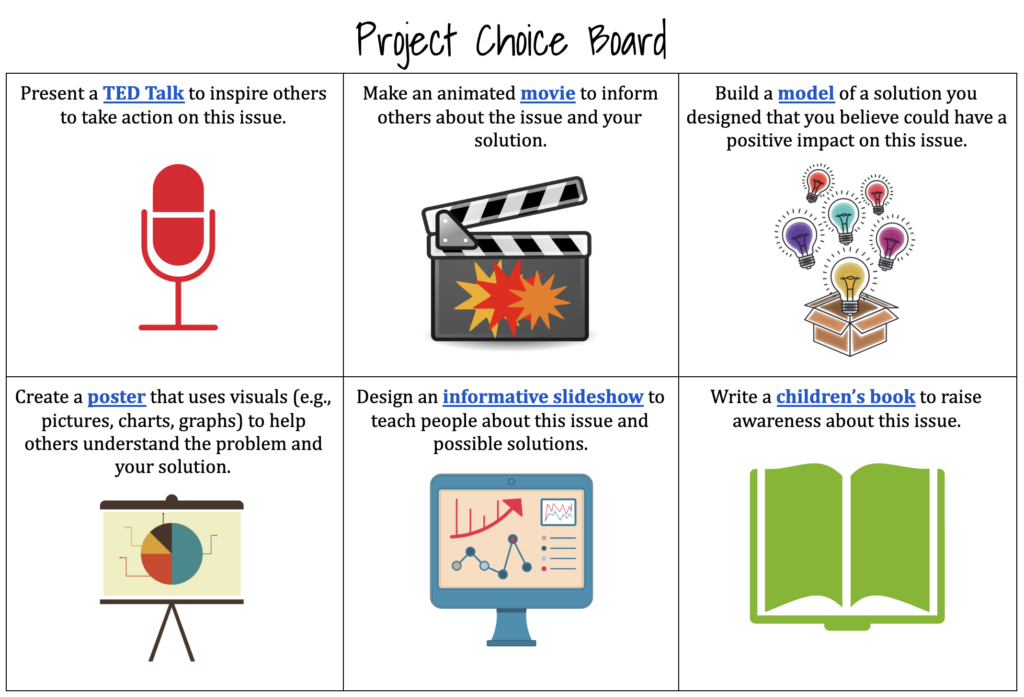OTAN News
Different Ways that Students Can Demonstrate Learning
All too often, the quick and easy way to see if students have learned something is to give them a quiz or test, score it, and pass it back. Formal assessments like these are definitely one way to see if and what students have learned, but there are many other ways for students to demonstrate their learning that are richer and more creative and exciting than always taking tests.
In her article Student Agency: What Do Students Want to Create to Demonstrate Their Learning?, Catlin Tucker has created a Project Choice Board with six different assessment options from which students can choose: present a TED Talk, make an animated movie, build a model of a solution, create a poster, design an informative slideshow, or write a short book. Tucker believes that providing choices gives students agency over their learning, which also helps personalize learning in the classroom, and gets them excited about showing what they know. (Tucker has also written an article 3 Ways to Build Student Agency into Your Lessons which discusses how to build student agency into your lesson planning; demonstrating their learning is one way for students to have agency in the classroom.)

One helpful feature of Tucker’s Project Choice Board is that there is a companion storyboard, outline, or planning document for each choice, so that students have some guidance on how to proceed with the choice they are interested in pursuing. All of Tucker’s files are Google Docs which can be copied and adapted for students, and there are opportunities to integrate tech tools into the projects which also help students develop their digital literacy skills.
When it comes to assessing your students, explore alternative ways for students to show what they know. If you need help with developing assessment strategies and tech tools that can be integrated into student assessment, please contact OTAN at support@otan.us or call our office at 916-228.2580.

